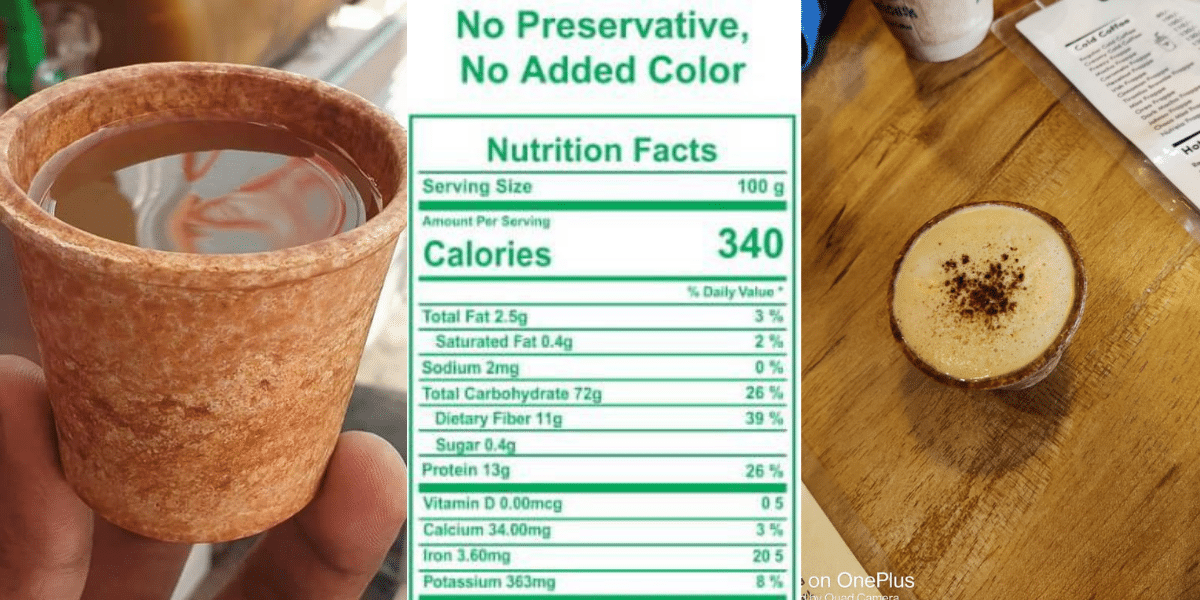The United Nations has deemed May 21 as International Tea Day. The day aims to raise awareness of the long history and the deep cultural and economic significance of tea around the world. The goal is to promote and foster collective actions to implement activities in favor of the sustainable production and consumption of tea and raise awareness of its importance in fighting hunger and poverty.
In India itself, close to 88% of the total households have reported consumption of tea. Within the potential tea drinkers within a household, the penetration of tea is about 96% and around 64% of the total population in India is the tea drinking population. With such a significant tea culture, many may wonder about the specifics of their favorite tea beverages, like how much sugar is in a chai latte, a beloved choice among Indian tea enthusiasts.
This explains why we call tea or chai an emotion. It is a quintessential part of our daily lives refreshing with every sip.
Up until now most tea is served in ceramic, glass, or metal cups in households and in non biodegradable disposable cups at tea stalls across the country. There is of course Kulhad which is biodegradable. But the amount of tea cups going into landfills is huge which poses a threat to the environment.
To address this, a startup from Delhi came up with completely edible cutlery which include tea cups, plates, spoons, etc which can be consumed after savoring the food.

Attaware, a serveware company founded by Puneet Datta is revolutionizing the entire tea industry with its eatable cups that replace the biscuits, or cookies often served as side dish or snack with the beverage.
“Along with our cup of chai or coffee we are habituated to eating something – whether biscuits, rusks or mathri (a savoury made in North India). The edible cup, therefore, helps in satiating our need to eat while sipping the tea,” said Puneet Datta to Life Beyond Numbers.
What led Puneet to come up with Attaware?

“During one of my travels from Delhi to Vrindavan, I saw something floating on the Yamuna River. I halted the vehicle to check and I found large amounts of thermocol in the water. This left me terribly disheartened,” shared Puneet Dutta.
Then again he saw few people lining up for food in the same trip on reaching Vrindavan. They were all served in the same thermocol plates.
“Most of them were handed a thermocol plate, one man did not get a plate and so he merely used one of the puris as a plate. I watched as he asked the person serving to add one scoop of chole (chickpeas) to the puri. That was an innovative way of using a puri,” Puneet remarked.
This small act became the very foundation of Attaware. He thought that if the man could use Puri as a plate then why not create a whole line of edible cutlery that can be consumed like the humble Indian fried bread. And after six years of research he founded Attaware Biodegradable Private Limited which was finally registered on August 15, 2019.
Soon they started out retailing various edible products like plates, spoons and cups.

Making sustainable, nutritious, and edible tea cups
In the beginning, Attaware underwent extensive research and developed an edible cup with a mixture of ingredients like wheat, bajra, jowar, corn and many more grains along with jaggery. Using grains and jaggery and not wheat alone to make the edible products, which increases the shelf-life from 6 months to 12 months.
“The question we raise is that how sustainable and nutritious is your Chai? You may say that nutrition and tea do not go together, for that you will take green tea, masala tea, or something else. This is where Attaware comes in. Our cups act as a great replacement to unhealthy snacks and are also packed with good amounts of potassium, calcium, proteins and minerals. When one sips tea from Attaware cup the ingredients are diluted without destroying its taste, fragrance, and color. And if you eat the cup the value will sky rocket,” informed the founder.
Moreover, Attaware does not have any colors, preservatives, added chemicals, edible oil, wastage of single drop of water, and there is no carbon footprint. The cups come in many flavors which include ginger, caramel, saunf (fennel seeds), elaichi (cardamom), orange, tulsi, strawberry, vanilla and coffee making it easy on the vendor who is catering to different tastes and requests from customers. With this they sell lakhs of tea cups every week.

A 2021 study by the company shows that they have mitigated 90-tonne plastic cutlery from reaching landfills, saved over 35,00,000 litres of water and generated 6,000 days of employment for over 50 employees during the pandemic. Yet the virus did hit the business.
“Some of the products that we were retailing became supremely popular while some just lost their way. With no big gatherings and parties taking place, the demand for plates and serveware reduced drastically. A lot of our bulk orders got cancelled and that was when we decided to stick to making edible cups,” shared Puneet.
“There are 140 crore people living in India. Everyone takes one cup of tea on an average per day. Attaware plans to get 1 percent of the market which will amount to 1.4 crore cups per day. This will be giving a lot of nutrition value to the people who drink tea from our cups. Every cup we sell has a social, health, environmental, and economic value attached to it. This is how we will be impacting the tea lovers of India. This is the roadmap going forward,” envisions Datta.
These edible cups can be bought via Attaware’s social media sites for Rs 10-12/piece. If one is keen on buying it wholesale, the price is even less based on their state of residence. Click here for placing your order.
Also read: Why Always A ‘Chaiwala’? This Time It’s ‘Chaiwali’ Taking Over The Internet

